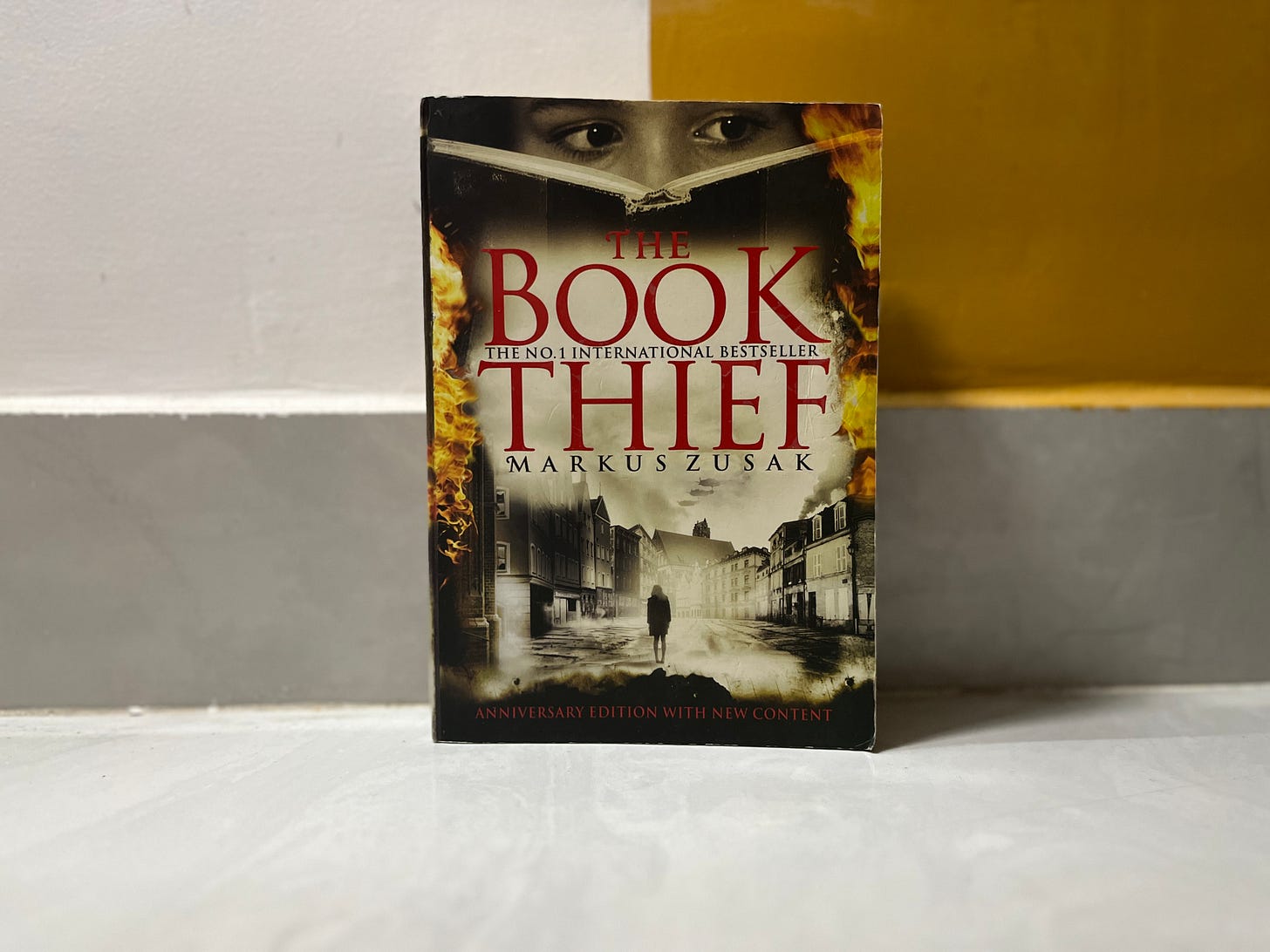The Book Thief
Welcome to my blog, dear readers! Today, we embark on a literary journey through the pages of Markus Zusak's extraordinary novel, "The Book Thief." Set against the backdrop of Nazi Germany during World War II, this poignant and dramatic tale offers a unique perspective—narrated by Death itself. Prepare to be captivated as we delve into a world where death is not portrayed as a malevolent force, but rather as an intrinsic aspect of existence.
"I wanted to tell the book thief many things, about beauty and brutality. But what could I tell her about those things that she didn't already know? I wanted to explain that I am constantly overestimating and underestimating the human race - that rarely do I ever simply estimate it." (p. 30)
-Death
Within these pages, the author skillfully weaves a narrative that combines detachment with empathy and compassion. Through the eyes of Death, we witness the unfolding of war's events and the lives of individuals caught in its merciless grasp. Amidst extreme agony and suffering, we also discover the unwavering flames of hope and resilience that burn brightly in the face of adversity.
Zusak's language possesses a vivid beauty that transports readers to a different time and place, painting vivid images within their minds. The characters he creates are so intricately developed that they cease to be mere figments of imagination—they become real people, with whom we forge deep connections.
At the heart of "The Book Thief" lies the character of Liesel, a young girl burdened by unfathomable losses. Her journey is one of profound loss and grief, but it is also one of strength and determination. As we follow Liesel's story, we witness her ability to navigate the depths of her sorrow and, in turn, discover solace and connection through the power of words and books.
"Sometimes I think my papa is an accordion. When he looks at me and smiles and breathes, I hear the notes." (p. 133)
- Liesel
Liesel Meminger was sent to live with a foster family in Nazi Germany. It is within the confines of this small hamlet that Liesel discovers the incredible power held within the pages of books and the beauty of words. Under the guidance of her kind-hearted foster father, Hans, Liesel learns to read and develops an insatiable love for literature. Her foster mother, Rosa, initially strict and harsh, gradually warms up to Liesel, forming a complicated and realistic bond with her.
Throughout the book, Liesel embarks on a daring path, stealing books from various sources, including the mayor's wife, and sharing them with her neighbours and friends.
One of the most moving elements of the story is the portrayal of Max Vandenburg, a Jewish man seeking refuge in Liesel's cellar. Max, a gifted artist, forms a deep friendship with Liesel and her family. Through Max's presence, we witness the bravery of those who risked everything to protect Jews during the war, as well as the harsh persecution endured by Jewish individuals at that time.
"I am haunted by humans." (p. 550)
-Death
The author employs a myriad of symbols that imbue the narrative with profound meaning and thematic depth. Death's eloquent narration captivates readers with its poetic language, vivid imagery, and thought-provoking philosophical reflections. The characters in the novel are masterfully crafted, exhibiting rich complexity and depth. Zusak's writing style is marked by its poetic beauty and insightful observations, utilizing powerful imagery and metaphorical language to convey the weight of the story's themes. In combination, the evocative symbolism, compelling characters, and eloquent prose weave a tapestry of emotions that lingers long after the final page.
"I guess humans like to watch a little destruction. Sand castles, houses of cards, that's where they begin. Their great skills is their capacity to escalate." (p. 35)
-Death
Amidst the brutal backdrop of the Nazi regime, the book fearlessly confronts the horrors of war and the persecution of Jewish individuals, offering vivid descriptions that deepen our understanding of the darkness humanity can harbour. Yet, amidst the darkness, the novel celebrates the indomitable spirit and the transformative power of love and hope, reminding us of the enduring impact of words to ignite hope and compassion even in the bleakest times.
"The Book Thief" by Markus Zusak is a masterfully crafted and profoundly moving book that explores the resiliency of the human spirit. It is a must-read for fans of historical fiction and those seeking emotionally resonant stories. As readers journey through this timeless narrative, they will be captivated by its lasting impact. For those who enjoyed "The Book Thief," other recommended novels from my TBR list include Anthony Doerr's Pulitzer Prize-winning "All the Light We Cannot See," Kristin Hannah's "The Nightingale," and John Boyne's heartbreaking "The Boy in the Striped Pyjamas." Brace yourselves for an unforgettable exploration of suffering, resilience, and the transformative power of literature.




